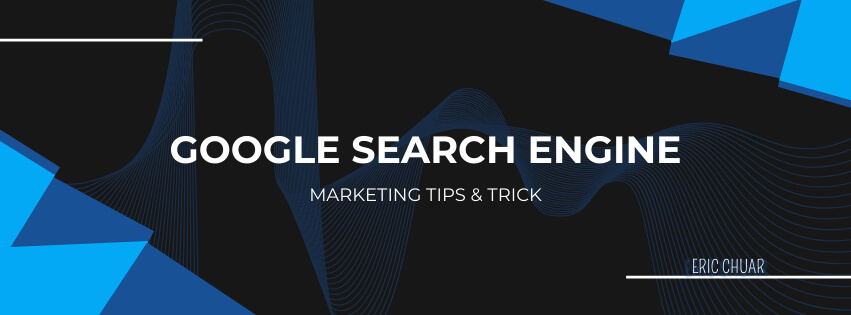Using Google Search Engine? There is no doubt that Google is the most popular search engine in Singapore. It has a huge user base and is used by millions of people every day. Many people have questions about how Google works and what it does. This post will answer those questions, including: How does Google make money? What is Google’s algorithm? How can I get my website ranked higher on Google? How can I improve my SEO? Why do people use Google? How does Google search work?
1. What is Google Search Engine in Singapore

Google Search Engine is one of the best search engines to use when searching for products and services. For users, Google is one of the most used search engines on the internet. However, the search engine was not always so popular. In fact, before Google Search Engine became the default option, there were other search engines like Yahoo, Alta Vista, and Ask.com. Now Google is an incredible invention of the modern era.
Google made the web accessible to everybody and thus changed the way we live today. Everyone uses Google to find something on the web and to read something on the internet. The Google search engine gives us all the information in the form of search results. The internet is the best place to find information.
2. What is Google’s Algorithm

Google’s Algorithm is a set of rules, procedures, and principles which govern the search ranking process.
It works in an iterative cycle.
Step 1 – Google analyzes the website or web page.
Step 2 – Google then compiles the data into a “Page Rank” score, which is essentially a snapshot of how useful and relevant your page is in relation to other pages.
Step 3 – Google ranks websites according to Page Rank.
Step 4 – Google then compares Page Rank of a given webpage with the websites that link to that webpage to determine where that webpage appears in the search results.
This process is repeated until a final result is determined.
3. What are the Keywords in Google Search Engine

The keyword is one of the basic elements of a page. You need keywords on the page so that the search engine can index your page for better search results.
If you write an article about “How to use Facebook”, there is no use if no one searches for “Facebook” and comes up with that article.
So, the undefined keyword is very essential to optimize especially for Singapore businesses. The keywords are nothing but the words that appear on the pages. It is a small word. It does not take much space on the page but still, it is important to be there as it helps the search engines to rank your site accordingly.
Commonly keywords are the keyword that a user types in a search engine. Google’s algorithm then determines what search results come up based on the keywords. For example, if a user searches for “apple,” then the first result in the search engine is apple.com.
4. The Number One Ranking Factor in Google Search Engine

The ranking factor can be defined as “the thing that influences rankings.” It’s the thing that makes Google Search engine behave in the way that it does. Google uses the ranking factor to determine which sites appear on the front page of the search results and what the user sees.
Google uses several ranking factors for determining its algorithm’s decisions. Among them, the page load time, the number of visits, the number of visits per day and per month, the number of links pointing back to your site, the number of users who view the site, the number of searches performed on the site, and the keywords used on the site.
5. Backlinks

The backlinks are the number of websites that link to your website. The backlinks will help to improve your website ranking and to increase your visitors.
The basic principle behind link building is fairly simple. When you build quality backlinks to your site, it helps your ranking. Google takes the content on those sites and measures how valuable that content is to Google. In essence, the more valuable content you provide, the more likely you are to rank highly.
Backlinks are generally divided into two groups – Do Follow Links and No-Follow Links.
Do-Follow Backlinks are those that pass the value onto Google for inclusion.
No-Follow Backlinks are those that don’t pass any value to Google, so they may not be included in your rankings.
6. Content

The content is the information or knowledge which is provided for your website. It is important to make your content interesting, informative, relevant, and concise.
Google uses various techniques and algorithms to determine the relevancy of a webpage to a search query. It is the best way to find out how a user is searching for a particular keyword or phrase and what they are looking for.
The page rank is calculated by the quality and quantity of backlinks to the website. It helps to increase the visibility of a website and gives more priority to the pages.
The foundation of any search engine. The content is what Google and other search engines read to determine if your website deserves a spot in the index. In this section, we’ll look at what constitutes good content for your website.
The best way to find out what makes good content is to look at what content is currently ranking. Some of the highest-ranking websites use many of the same techniques.
7. Links

The links are a very important element in the Google Search Engine. This is the main purpose of the page and the other pages that are linked to this page. These pages are referred as backlinks. This means that they are connected to this page. The search engine spider visits the pages and records the information which is available on these pages.
There are different types of pages, such as HTML pages, PDF, word documents etc. This information is then used to make an index of the whole web. This index is called the google search engine index. Google uses this index to find relevant results to the queries.
8. Quality of the Site

The quality of the site plays an important role in how the search engine interprets your page. Here are some tips to improve the quality of your site to help it rank higher in the search engine.
You can make your site mobile-friendly. This means adding a responsive design or mobile-first approach to your site. This will make sure that the site is easily read and navigated by mobile users.
Use semantic markup. Semantic markup allows search engine spiders to better interpret the meaning of the text on your pages. For example, instead of just “This is a book”, include the genre, such as “book”.
Make sure the keywords and search phrases are properly incorporated into the title and body of the page. If the page doesn’t contain enough keywords or search phrases, it won’t be considered high quality.
Make sure the content is up to par. Use good grammar, spelling, and formatting. Make sure the content is accurate, informative, and useful.
Don’t use flash. Flash is usually considered low-quality content and it could potentially cause the search engine to penalize your site.
Use relevant images. Your images should be relevant to the content of the page.
9. Quality of the Content in Google Search Engine

The quality of the content matters a lot. It should not be filled with random words or phrases. It should be written using proper grammar and punctuation.
In addition, search engines place a high premium on the originality of content. In this regard, a good article about the benefits of organic gardening will fare better than an article copied from another source.
Quality content is the most important factor. The more valuable content you have on your site, the more likely users will find your website. And when a user finds your site, it helps if they find content that answers their query.
If you’re optimizing your site for Google, then you’re basically writing content for a robot. A robot that knows what it wants to find.
A robot that can’t tell the difference between content that’s valuable to you and content that is just there for the sake of being there.
So the question is, how can you make sure you have relevant and valuable content that Google’s robots can recognize?
There are a few things that are common sense, but also a number of different techniques that you can try.
For example, you can use keywords, headings, and subheads to structure your content. This helps make your content easier for readers to navigate and allows search engines to better understand the topic.
Also, try to limit the amount of images in your content. Images take up a lot of page load time and can cause issues with search engine crawling.
SEO Content
But what about SEO? There’s no point in having a well-written blog post if nobody ever sees it. One of the best ways to boost search engine visibility is to optimize your content for search engines.
This means that you need to make sure your content is written in a way that is understandable to Google and other search engines.
Another tip is to avoid keyword stuffing. This is where you use a lot of the same keywords in one paragraph or sentence.
Keyword stuffing can cause your content to be removed from search results and it also makes it difficult for search engines to parse your content and understand what it is about.
10. Site Architecture

The site architecture has an impact on how your pages are ranked in search engine results pages (SERPs). The main focus is on how a page’s content is organized (structure) in relation to its keywords (content).
Google and other search engines use several criteria to determine which sites should appear on SERPs. The more relevant and useful the information, the higher the likelihood that a search engine user will click on that page.
Keywords are essentially words that people type into search engines when they want to find a particular site. For example, if you wanted to read about the history of cars, you might type the words “car history” into a search engine.
You might then click on the first result you see, which may or may not be your intended destination. However, if the results show a link to Cars.com, there’s a good chance that you would follow the link. This is because the site was optimized for those search terms.
If the content on the page is relevant to the keywords you used in your search, it’s likely that the search engine will list your site as a result. It could be on the first page of search results, or it could be on page five. It all depends on the competitiveness of your site’s keywords.
11. Site Usability

Site usability is a vital component of any digital business strategy. It’s the quality of user experience you provide your visitors and leads so they want to interact with your website.
Google Search Engine Optimization (SEO) is the practice of designing and structuring web pages so that the search engine spiders can identify and categorize them as high as possible. However, in today’s increasingly crowded world of the internet, it is equally important to ensure that your visitors can navigate your site and use it effectively. This is where usability comes in.
Site usability is also the most important aspect of any website, whether you’re working to rank #1 for keywords or simply trying to ensure visitors stick around long enough to find the answer to their questions.
The Google algorithm focuses on these elements. To give you a sense of what they are, here are just a few of the things they look at.
Your website is the first thing they see when they go to Google and that is exactly what you want them to see.
12. Site Speed

Site speed is another term used by many people to refer to page load time. A website with slow speed, especially on mobile devices, causes users to lose interest and often bounce. In other words, they’ll never come back.
In addition to the site speed, Google also takes into consideration many other factors that affect the ranking of a website. One of those factors is site speed. If a website is slow, it will affect its ranking in search engines.
Moreover, if you are looking to increase the ranking of your website, you should take a look at the site speed of your website. Make sure that your website is loading fast and that you are keeping an eye on this factor.
13. User Experience

User experience is an important factor in a successful user experience. A slow site will put the users off, making them leave your website. This can cause lost sales and poor ratings. There are many things that can affect the speed of your site. The first step to optimizing your site speed is to analyze the performance of your site using the Google PageSpeed Insights tool. It
t’s free and will provide you with a lot of helpful information about the speed of your page. You should use a plugin such as GTMetrix to see where the bottlenecks of your site are. You will need to test each link and any image on your website. You should start with those in the header and footer.
14. The Google Penalty in Google Search Engine

Similarly, the Google Penalty is a penalty against websites and is the equivalent of a warning issued to a driver who doesn’t have a license. A website that receives a Google Penalty may still be searchable in a search engine, but it will be shown in red font instead of its regular blue color.
This penalty is given to sites with a variety of violations, including keyword stuffing, spammy links, or other practices which violate Google’s quality guidelines.
When a site is penalized, Google provides a link to a Webmaster Guidelines page that explains how the site violated Google’s policies and what the penalties are for each violation.
15. Google’s Guidelines

Similarly, Google’s Guidelines is a collection of over 100 tips and tricks to help you optimize your website.
Google’s guidelines are important because they provide a benchmark to which every other SEO strategy must be aligned. This means they must be considered at every stage of the web design process and any deviation may mean you lose valuable traffic.
Google’s guidelines are written by the SEO team, but they are not rigid or overly prescriptive. Instead, they are a living document with ongoing updates, changes, and refinements as Google itself evolves.
So the next time you go on a website redesign, remember to keep these google’s Guidelines in mind. They are there to help you achieve success with your site, so you don’t want to ignore them.
16. Google Search Engine Conclusion

Lastly, the final Conclusion is to make sure that your website is fully optimized so that it shows up as a top search result.
Your website should be the first-page result if a person is searching for something related to your business.
Search engines like Google are constantly changing their algorithms to determine which websites rank highest for specific searches. These changes are made to improve the user experience and ensure that people find exactly what they are looking for.
The search engine algorithms reward websites that are fully optimized with relevant content, keywords, metadata, social media integration, etc.
The algorithm changes occur every few months. The most recent major update took place in September 2019.
It’s important to be aware of the latest updates, but don’t panic about the changes because you need to continue focusing on the basics of SEO.
If you are confused about what you need to be doing and how to measure the impact of your efforts, then it may be time to bring in a professional SEO agency.
Thank you for reading!





